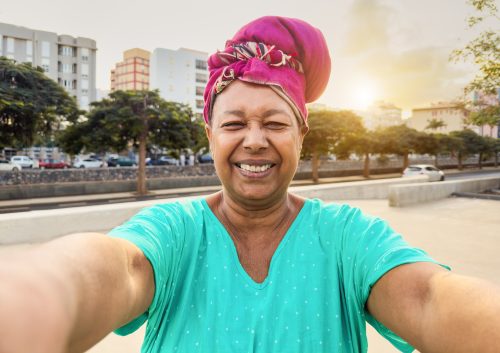To conclude our International Women’s Day 2022 blog series, we spoke to Debbie, an Oban LIME – Local In-Market Expert – in Malaysia, to find out more about life for women in her country.
Debbie, what is it like for women at work in Malaysia?
The International Monetary Fund (IMF) reports that Malaysia’s labour force participation rate for women is 54%, which is low compared to some of the other economies in the region and the OECD average. By comparison, the men’s participation rate is about 80%.
Well over half (56%) of Malaysian women polled say they have experienced at least one form of gender discrimination in the workplace. Nearly two thirds (62%) say the most common form of discrimination is sexual harassment.
According to Ipsos research in 2021, Malaysians underestimate women’s experience of sexual harassment, and are over-optimistic about when pay and economic equality will be achieved. The same research showed that Malaysians overestimate women’s representation in business leadership – for example, by guessing that one in five (19%) of the world’s top 500 companies has a female CEO – when the actual figure is just 3%.
According to a report by the Department of Statistics Malaysia, the three Malaysian states with the highest levels of gender equality in 2020 were Kuala Lumpur (85.3%), Putrajaya (79.3%), and Perlis (78.2%).
What about women in leadership roles in Malaysia?
The 30% Club Malaysia is a business group that campaigns for more female directors on company boards and has helped women into leadership positions. Their goal is for at least 30% of corporate boards in Malaysia to be made up of women and as of 2021, they are close. Currently the figure stands at 26%.
Research from Grant Thornton shows that female participation in C-suite roles is on an upward trajectory in Malaysia – with the proportion of female CFOs at 41%, female CMOs at 36% and female CIOs – Chief Information Officers – at 20% – according to their Women in Business 2021 report.
In Malaysia, there are about 650,000 entrepreneurs and it’s estimated that 20% of the registered total are women.
In 2020, there were around 234,000 male students and 359,000 female students enrolled in public higher education institutions in Malaysia. This reflects the worldwide trend of more women entering higher education than men.
What’s holding women back at work in Malaysia?
Malaysia is bound by Islamic (Shariah) law in a few states, especially on the East Coast (i.e. Kelantan, Terengganu and Kedah), even though there is disagreement amongst Malaysian political parties as to whether or not Malaysia is an Islamic country.
As a result, women who live in these states have fewer or no opportunities to work. Because of their religious beliefs, these women play a certain nurturing or care-giving role in their lives which focuses on motherhood.
Outside of religion, other reasons which might prevent or hamper a women’s role in the workplace include:
- A lack of flexible or remote working options
- Occupational segregation
- Pre-conceived judgement towards women’s marital status
- The undervaluing of women’s work
- Salary discrimination and a gender pay gap
- Imposter syndrome
- Lack of confidence and negotiation skills
- ‘Motherhood penalty’, where working mothers face disadvantages in the workplace
- The lack of female representation in executive positions compared to non-executive roles
- Weak sexual harassment laws
The Malaysian Labour Force Survey in 2018 found that over 60% of women who don’t participate in the formal labour force cited domestic caring responsibilities, including child and elderly care, as their main reason for not seeking work.
What about equality legislation in Malaysia?
In Malaysia, the basic concept of equality before the law and equal protection of the law is contained in Article 8(1) of the Federal Constitution. The article generally prohibits discrimination against a person or class of persons, unless there is a rational basis for such discrimination. The word “gender” was subsequently inserted in Article 8(2) to comply with Malaysia’s obligations under CEDAW (the Convention on the Elimination of all forms of Discrimination Against Women).
Who would you highlight as famous Malaysian female leaders?
There are many, but a few would include:
Datuk Seri Dr Wan Azizah Wan Ismail, Malaysia’s Deputy Prime Minister in 2020 who has championed and reformed women’s rights in Malaysia.
Irene Fernandez, a feminist and human rights activist who has championed migrant workers’ rights.
Zainah Anwar, an Islamic feminist activist and co-founder of Sisters in Islam.
Norani Othman, an academic and editor of Muslim Women and the Challenge of Islamic Extremism, as well as a co-founder of Sisters in Islam.
. . .
This article is based on insights and commentary supplied to us by Debbie, one of Oban’s LIMEs based in Malaysia. Oban’s LIME network comprises over 450 Local In-Market Experts based in over 80 countries around the world. Our LIMEs provide authentic, on-the-ground cultural, linguistic and digital insights that help our clients succeed in their target markets. To find out how your business could benefit from Oban’s LIME network, please get in touch.
Oban International is the digital marketing agency specialising in international expansion. Our LIME (Local In-Market Expert) Network provides up to date cultural input and insights from over 80 markets around the world, helping clients realise the best marketing opportunities and avoid the costliest mistakes.
Let’s accelerate action together
At Oban, we believe change happens when we act, support each other, and keep moving forward. These stories show how small steps can make a big difference. If you want to improve your digital marketing, get in touch. Let’s get started.




